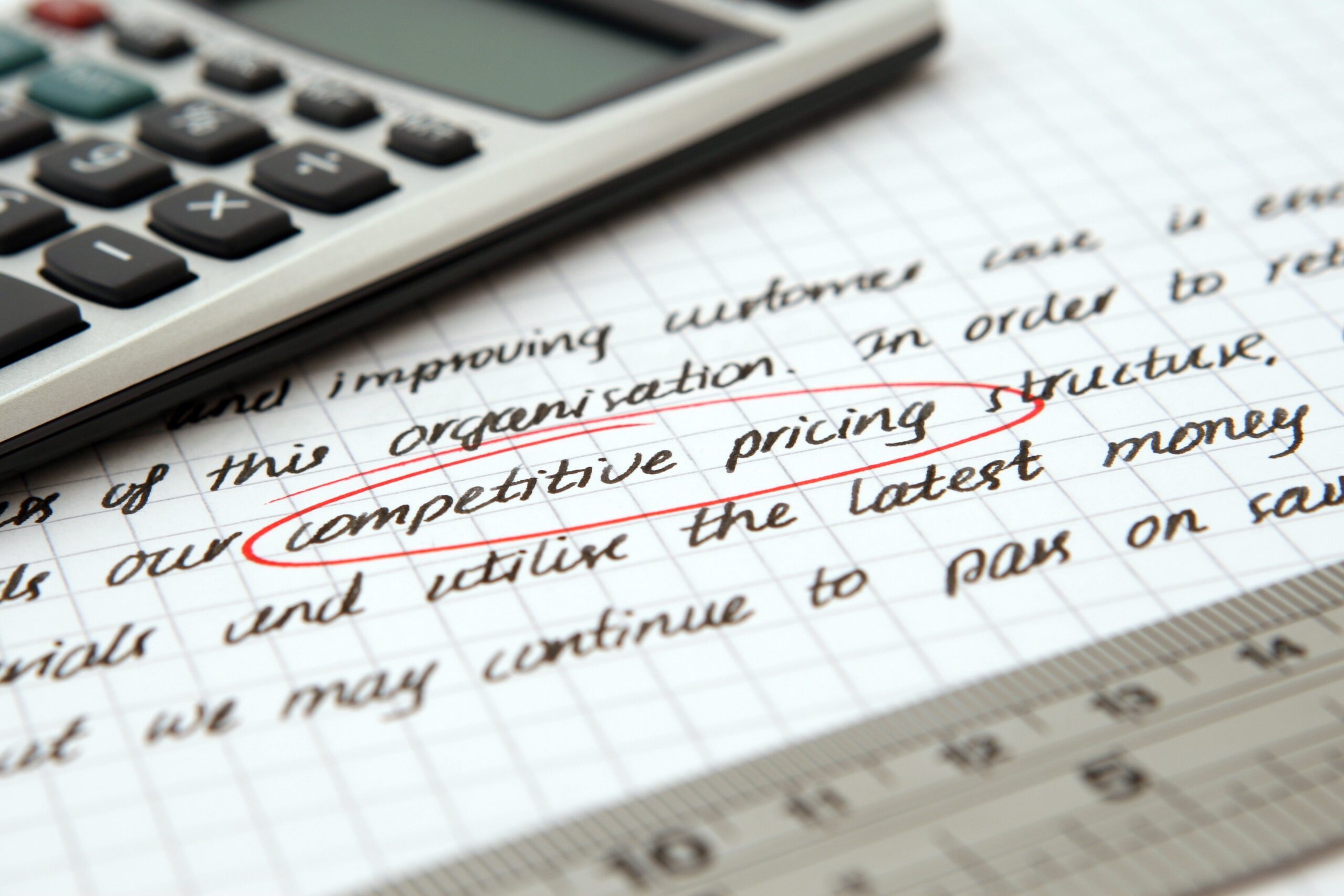4 ways AI can help optimize ecommerce pricing strategies
Prices are undoubtedly an important part of ecommerce. Given the intensely competitive landscape of the industry, setting the right price has become even more important. Extremely high and low prices can lead to customer turnover and lost sales, respectively. From competitor prices to prevailing market trends, there is a lot involved in developing a pricing strategy that suits your business. This increasing complexity has led companies to entrust technology with the decision-making process. Artificial intelligence is expected to be one of the technologies used by ecommerce companies to set prices. And based on the available evidence, it does an excellent job in developing optimised pricing strategies for ecommerce brands.
WHY IS IT IMPORTANT TO OPTIMIZE PRICE STRATEGIES IN ECOMMERCE?
According to McKinsey and Company, optimizing prices can increase profits by 3-5%. These kinds of statistics show the importance of optimized pricing strategies for a company. Let's take a closer look at three crucial reasons why every ecommerce business needs to have the right pricing:
ENSURE COMPETITIVE ADVANTAGE
E-commerce is a highly competitive field that requires companies to be proactive and progressive. Companies must adopt optimized pricing strategies to gain and maintain a competitive advantage. This helps to attract new customers. For context, a survey conducted by Invesp revealed that 60% of customers rate price as the most critical factor when making a purchasing decision. It also helps prevent customer churn, as customers often return to companies that offer them the best prices on the market. By securing this much-needed competitive advantage, companies can better adapt to new market trends.
MAXIMIZE PROFITS
Optimized pricing strategies invariably lead to maximum profit for companies. Optimal pricing means taking due account of current market demand and consumer behavior and varying pricing accordingly. Monitoring competitors' prices is also vital for profit maximization as it gives brands the ability to attract customers by offering lower prices or higher value for money than the competition. This leads to more revenue streams that will contribute to better profit margins.
MORE SALES
The ultimate goal of any business is to sell as many of its products and services as possible. Optimized pricing strategies can guarantee companies to exceed their sales requirements every year. First, by offering competitive prices, unique pricing models, promotions, discounts and bundle deals, companies will lure customers away from their competition and increase their sales volume. Likewise, they will also drive more repeat business, further contributing to higher sales volume.
HOW DOES AI CONTRIBUTE TO OPTIMIZED PRICING STRATEGIES FOR ECOMMERCE?
Using AI to optimise pricing strategies has many established advantages. Compared to the alternatives, AI guarantees accuracy that enables the design of more accurate pricing models. In fact, a study by McKinsey & Company found that AI could improve pricing accuracy by as much as 20%. Because the ecommerce market is far from static, companies need to be flexible enough to make real-time adjustments to their pricing models. AI provides this capability through real-time data analysis, allowing users to react quickly to changes and fluctuations in market conditions.
In addition, AI analysis of customer data can help personalize pricing strategies that will delight customers and increase loyalty. According to Deloitte, using AI to create optimized pricing strategies can save up to 40% on time spent analyzing data. AI thus allows for a more judicious allocation and use of human and material resources. All this leads to more sales and profit and improves scalability.
How exactly does AI contribute to the optimization of ecommerce pricing strategies? Here are four possible ways:
DYNAMIC PRICES
Dynamic pricing is a pricing strategy that adjusts prices in real time to account for changes in various factors, such as supply and demand, inventory levels, and competitor prices. Dynamic prices are excellent because it allows companies to maximize their revenue regardless of the nature of the market. AI's significant computational power makes it a great asset for companies considering dynamic pricing.
AI can consume, process and analyze large amounts of data in real time and use machine learning algorithms to make price recommendations that are likely to increase sales. Also, AI can accurately track competitors' prices and suggest price adjustments to help companies stay competitive in the marketplace. Therefore, dynamic pricing powered by AI can be a reliable and robust solution for companies looking to develop optimized pricing strategies.
PERSONALIZED PRICES
Another pricing strategy that AI can contribute to is personalized pricing. This model offers different prices to different customers. To achieve personalized prices that are fair and sustainable, decisions must be made based on the analysis of customer data such as demographics, purchase history and preferences; this is where AI becomes invaluable. AI can use different techniques to segment customers into groups, then machine learning can make price recommendations for the different segments and individuals within each group.
In addition, AI can identify customers who may be interested in loyalty programs and then provide optimized pricing strategies for all customers based on their participation in the program. In addition, AI can perform predictive analytics to predict future customer behavior and then make personalized offers based on these predictions. AI can ensure customer satisfaction and loyalty by delivering such a high level of personalization through custom pricing.
PRICE OPTIMIZATION
Even companies whose models are not suitable for dynamic pricing still need to optimize their fixed prices. Price optimization is the process of determining the price point that strikes the balance between maximizing profits for businesses and providing the best value to buyers. Massive amounts of data, including sales data and information about customer behavior, market trends, and competitor prices, need to be analyzed for price optimization, and AI once again excels at this. Using techniques such as machine learning, data mining, optimization algorithms and neural networks, AI can analyze data, identify patterns and make predictions to help companies determine the optimal price for any product or service.
Using AI to optimize fixed prices can be a rewarding process. This is because it leads to faster and more accurate decision making, which is essential for companies to keep pace with their rivals. It also contributes to getting higher lifetime value from customers as they always get the best value for the money exchanged for goods and services. Therefore, they are likely to remain loyal customers of the brand for years to come. And of course, it helps companies maximize profits so they can continue to grow at scale and achieve long-term success.
EXPERIMENT PRICE
With regard to pricing in ecommerce, different models can be useful depending on a number of variable factors. Dynamic pricing, value-based pricing, and subscription pricing are some of the most popular models in use. It can be difficult to choose which of these optimized pricing strategies is best for your business and it often takes pricing experimentation through A/B testing to make informed decisions. AI can play a vital role in this area by ensuring that the A/B tests are performed efficiently and quickly and that the resulting insights are highly accurate.
AI contributions to pricing experiments include designing effective A/B tests by selecting key variables to test and determining the best sample size. AI can also randomize the distribution of customers between the test and control groups to eliminate human bias. The technology can also speed up data collection and analysis, and even use its predictive capabilities to optimize pricing strategies over time. Therefore, companies can make data-driven decisions about pricing models that allow them to make the most profit and provide maximum customer satisfaction.
In short, developing optimized pricing strategies can be complex and frustrating. AI however, offers many reasons for optimism, as it is a powerful tool that can contribute to the optimization of pricing strategies in several ways. If your business is still struggling to decide on the best prices or pricing models, now is the time to move to AI.


